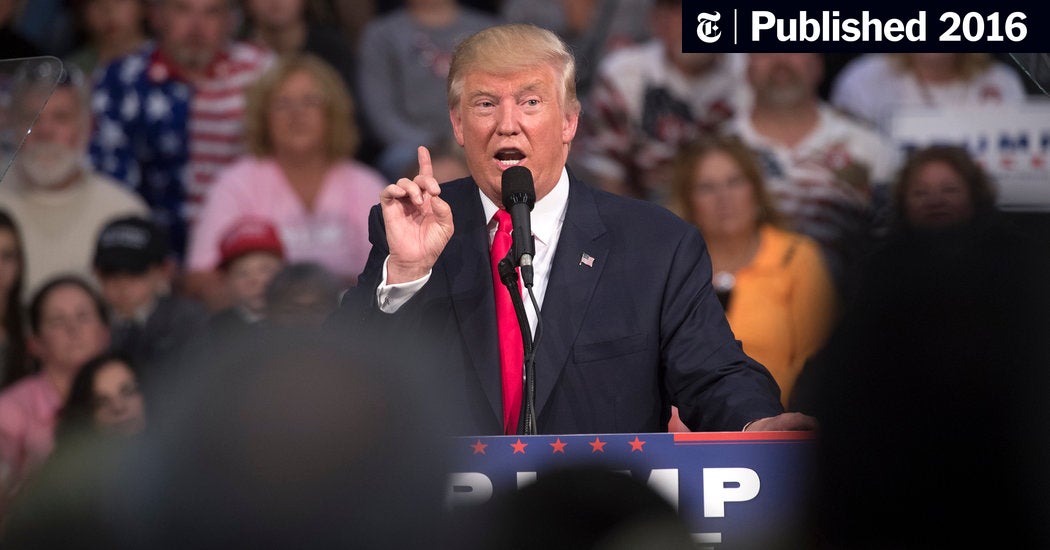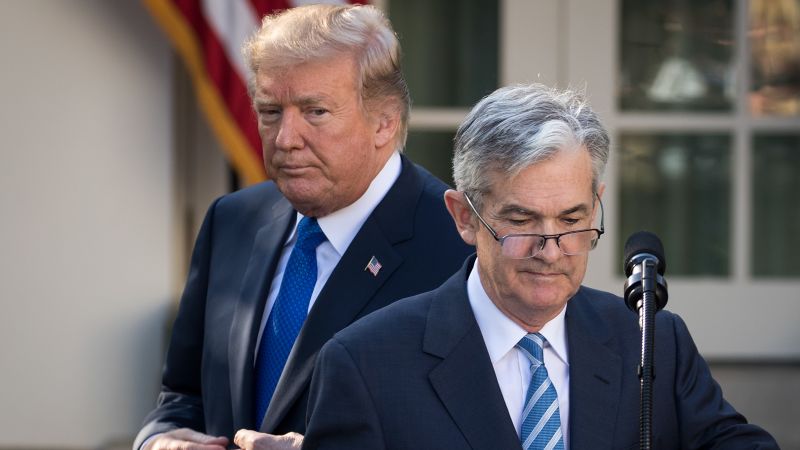Trump Administration Shows Willingness To Negotiate With Harvard After Major Lawsuit

Table of Contents
The Background of the Harvard Lawsuit
The lawsuit against Harvard University, initially filed by Students for Fair Admissions (SFFA), alleged that Harvard's affirmative action policies discriminate against Asian-American applicants. The SFFA argued that Harvard’s admissions process uses race as a negative factor, penalizing Asian-American applicants who, on purely academic merit, would be more likely to be admitted. This case has been closely watched, potentially reshaping college admissions nationwide. The Department of Justice (DOJ) joined the lawsuit, significantly increasing its impact and drawing intense national attention.
- Allegations of discrimination against Asian-American applicants: The core of the lawsuit centers on claims that Harvard's holistic review process, while ostensibly aiming for diversity, disproportionately disadvantages Asian-American applicants by penalizing their strong academic records and favoring other racial groups.
- The role of the Department of Justice in the lawsuit: The DOJ's involvement amplified the case's significance, signaling the Trump administration's serious commitment to challenging affirmative action policies in higher education. Their participation provided significant resources and legal weight to the SFFA's claims.
- The potential impact on other universities with similar admission policies: The outcome of the Harvard case will establish a powerful legal precedent. A ruling against Harvard's policies could trigger a wave of similar lawsuits against other universities employing similar affirmative action approaches. Many institutions rely on holistic review processes, making them potentially vulnerable to similar legal challenges.
The significance of this case cannot be overstated. It directly challenges the long-standing practice of affirmative action in college admissions, potentially leading to profound changes in how universities select their student bodies. The Supreme Court could revisit the precedent set in Grutter v. Bollinger and Gratz v. Bollinger, which addressed the constitutionality of affirmative action in higher education.
The Trump Administration's Initial Stance
Initially, the Trump administration adopted a firm stance against Harvard's affirmative action policies. The DOJ, under Attorney General Jeff Sessions, actively supported the plaintiffs, arguing that Harvard's admissions process violated the Equal Protection Clause of the Fourteenth Amendment.
- Statements made by administration officials regarding Harvard's admissions process: High-ranking officials within the administration publicly criticized Harvard's admissions practices, labeling them discriminatory and unfair. These statements clearly signaled the administration's intention to pursue a vigorous legal challenge.
- The administration's support for the plaintiffs in the case: The DOJ's active participation in the lawsuit demonstrated the administration's unwavering support for the plaintiffs' claims. This level of involvement went beyond mere observation, indicating a determined effort to dismantle affirmative action policies.
- Potential legal arguments used by the administration: The administration's legal arguments focused on the alleged discriminatory impact of Harvard's policies on Asian-American applicants. They sought to demonstrate that Harvard's consideration of race in admissions violated the principles of equal opportunity and meritocracy.
The administration's initial strong opposition to affirmative action appeared driven by a combination of ideological conviction and political expediency. The hardline stance resonated with a segment of the electorate, potentially bolstering support among certain voter demographics.
The Shift Towards Negotiation
The Trump administration's surprising shift towards negotiation represents a significant change in strategy. Several factors could explain this apparent change of heart.
- Internal shifts in legal strategy: It's possible that internal legal assessments revealed weaknesses in the administration's case or a low likelihood of success at the Supreme Court level. This could have prompted a reevaluation of their strategy.
- Potential political pressure: The administration may have faced pressure from various stakeholders, including potential backlash from universities and other concerned groups. This could have influenced their decision to pursue a negotiated settlement rather than risk an adverse Supreme Court ruling.
- Concerns about the outcome of the case: An unfavorable ruling could have set a far-reaching precedent, potentially impacting admissions policies across numerous universities and undermining the administration's broader agenda on higher education.
The implications of this shift are far-reaching. It suggests a potential recognition of the complexities of affirmative action litigation and a willingness to explore alternatives to a protracted and potentially damaging court battle. It also raises questions about the long-term viability of the administration's aggressive stance on affirmative action.
Potential Outcomes and Implications
The negotiation process could lead to several potential outcomes:
- A complete settlement and withdrawal of the lawsuit: This outcome would represent a significant victory for Harvard, allowing it to maintain its current admissions policies without major changes. However, it might also embolden other institutions to maintain similar practices.
- A modified admissions policy at Harvard: Harvard might agree to modify its admissions process to address some of the plaintiffs’ concerns, perhaps by reducing the weight given to race in admissions decisions. This could set a new benchmark for other universities.
- Implications for other universities facing similar legal challenges: The outcome of the Harvard case will undeniably serve as a precedent. Other universities facing similar challenges may choose to preemptively revise their admissions practices or brace themselves for intensified legal battles.
The long-term consequences for higher education and affirmative action are significant. Regardless of the outcome, the Harvard case will shape future discussions on diversity, equity, and access in higher education, potentially influencing admission policies and legal frameworks for years to come. The settlement, or the lack thereof, will establish critical legal precedent affecting the future of affirmative action in higher education.
Conclusion
The Trump administration's decision to negotiate with Harvard after initiating a significant lawsuit against its affirmative action policies represents a significant development with wide-ranging implications for higher education. The reasons behind this shift remain complex, encompassing potential legal, political, and strategic considerations. The outcome of these negotiations will undoubtedly influence the future of affirmative action and set a precedent for similar cases across the country.
Call to Action: Stay informed about the evolving situation surrounding the Harvard lawsuit and the Trump administration's stance on affirmative action. Follow future developments regarding this landmark case to understand the ongoing impact on college admissions and the future of affirmative action in higher education.

Featured Posts
-
 417 5 Million Stalking Horse Bid Village Roadshows Sale To Alcon Complete
Apr 24, 2025
417 5 Million Stalking Horse Bid Village Roadshows Sale To Alcon Complete
Apr 24, 2025 -
 Instagram Aims To Rival Tik Tok With New Video Editing App
Apr 24, 2025
Instagram Aims To Rival Tik Tok With New Video Editing App
Apr 24, 2025 -
 Trump Denies Intentions To Fire Federal Reserve Chair Jerome Powell
Apr 24, 2025
Trump Denies Intentions To Fire Federal Reserve Chair Jerome Powell
Apr 24, 2025 -
 Nba 3 Point Contest 2024 Tyler Herros Victory Over Buddy Hield
Apr 24, 2025
Nba 3 Point Contest 2024 Tyler Herros Victory Over Buddy Hield
Apr 24, 2025 -
 Turning Trash To Treasure An Ai Powered Poop Podcast From Mundane Documents
Apr 24, 2025
Turning Trash To Treasure An Ai Powered Poop Podcast From Mundane Documents
Apr 24, 2025
